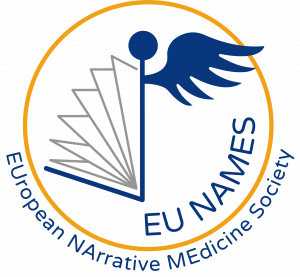The European Narrative Medicine Society was born in 2020 from the idea of the Italian Society of Narrative Medicine (SIMEN), which had the visionary idea of creating an international network, in Europe, and especially when Europe was facing – and still is – difficult nationalistic processes such as Brexit as well as the COVD-19 pandemic, and the Russian-Ukraine war. And now the huge increase in the number of migrants coming from Africa and Asia.
Philia
But please, beyond this official statement, let me tell you how it was envisioned and constructed: it was inspired by a Lectio Magistralis of many years ago by Prof. Carlo Sini, one of the most eminent Italian philosophers who explained the concept of philia, friendship, in the ancient Greek cultural context. I was stunned.
Philia, from which legacy words such as philosophy and philanthropy come from, implies a movement of attention, interest, of curiosity of human beings toward a specific subject. This is an “inter-est,” that is a “something” in between who affiliates (again the word philia, from ad-phylos) the people. As I learned from Sini’s lecture the ancient Greek philia had nothing to do with the common contemporary meaning of friendship, companions with whom having good leisure time, or, in a more humanitarian way, people who support you in a difficult time.
This was the compass that inspired me to connect our Friends within this so-called European Narrative Medicine network: having scholars, researchers, health care professionals, people from the academic world, and citizens related by their philia towards health humanities and narrative medicine. We had a very important endorsement by the World Health Organization Europe in creating these connections among these affiliates, very often left alone to teach, carry out research and practice narrative medicine in their settings of care.
narratives beyond the evidence-based PARADIGM
This work is made alone since health care is not only in the realm of Evidence-Based medicine; this obviously brings difficulties since EBM poorly tolerates or rejects the ambiguity of the narratives (that is also the ambiguity of the human beings) but also because the management pressure and the shortage of resources leads to the thinking that Health Humanities and Narrative Medicine are too time-consuming. Only for spoiled doctors and spoiled patients.
This is such a short-sighted idea, with a huge prejudice: the narrative posture must be planted within the DNA of every carer, since, most likely it is in the DNA of every human living on this planet (if it does not show up it is because the reptilian brain plays its role).
Yes, there are people who prefer processing information than seeking the meaning of what happens when an illness occurs, and this is embedded in our globalized culture for BIG DATA: however, we believe as a group of interest, that the possibility of finding any meaning during the perpetual oscillation between health and illness, might, could, and should be a therapeutic act.
eunames today: what we do and who we are
EUNAMES focuses its attention more on the contents than the number of affiliations: and it proceeds by contents; every month a different lecture on so many different topics of Health Humanities; the bioethics of the Green pass and its different applications in the European Countries (with so many policies, so many languages, so many different cultural contexts), the narratives of citizens on vaccinations, the war and abuse on women migrants (coming from Africa) and refugees from Ukraine, the medical students’ fragility and their existential questions, the future role of doctors embedded in telemedicine, the creativity added in a laboratory of anatomical pathology, the art of dying taught by Cicely Saunders, the music healing in the places of care, art therapy, the comparison between Western medicine paradigm and traditional societies, the teaching and learning STEM through the analogic thinking of Humanities…
And by doing this constantly and patiently, I think that we are adding another meaning to that ancient concept of philia, which was more like a book club: now, after these three years, I can say that friendship with support, help, and spending nice times together, although online, has been achieved.
Now half of the European countries participate in Eunames: we miss the Scandinavian countries and that’s a shame because they are the happiest countries to live in the world, and it would be nice to know how they achieve their happiness. Although we have requests for participation in the EUNAMES meeting from “NERDs” of Health Humanities and Narrative Medicine across the oceans, and this is awesome.
future eunames: the quantum leap?
In the future, I really wish to see a blossoming, or even better, a re-discovering of Narrativity as an act of care, despite the dark time that Europe and the Health Care Systems are going through, with a tremendous lack of nurses and doctors, and where the human and narrative touch cannot be replaced by a self-administered pill.
EUNAMES, once having consolidated friendship, could be ready for the quantum leap, and become an activist movement.

